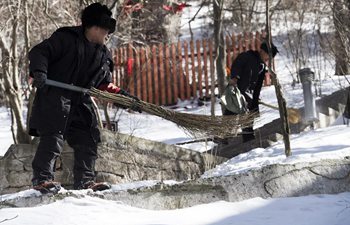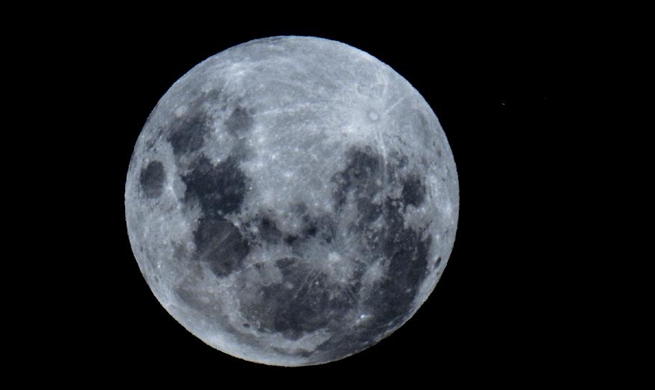WASHINGTON, Jan. 31 (Xinhua) -- An American study shows hydraulic fracturing, an oil and gas extraction method that injects large amount of freshwater and chemicals into shale, may use up streams that provide drinking water for species with already declining populations.
Scientists reported on Wednesday in American Chemical Society's journal Environmental Science & Technology, that "fracking" operations could have impacts on water quantity, not only quality, because they are withdrawing large amounts of water from nearby streams, which house aquatic ecosystems and are used by people for drinking and recreation.
It shows that, on average, about 19 million liters of freshwater is used to fracture one gas well in the United States, more than enough to fill seven Olympic-size swimming pools.
Sally Entrekin and colleagues at University of Central Arkansas wanted to flesh out a picture for the Fayetteville Shale play, an active gas field in Arkansas where more than 5,000 gas wells were drilled using fracking techniques between 2004 and 2014.
The streams in the area help supply drinking water to thousands of people in the region and are home to 10 aquatic species that are declining at a concerning rate.
The team's calculations revealed that freshwater usage for fracking could potentially affect aquatic organisms in 7 to 51 percent of the catchments, depending on the month.
If 100 percent of the wastewater were recycled, the potential impact drops, but 3 to 45 percent of catchments could still be affected, it shows.
The researchers conclude that improved monitoring and access to water withdrawal and streamflow data are needed to ensure protection of streams as drinking water sources and valuable habitat in the future.

















